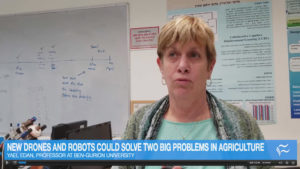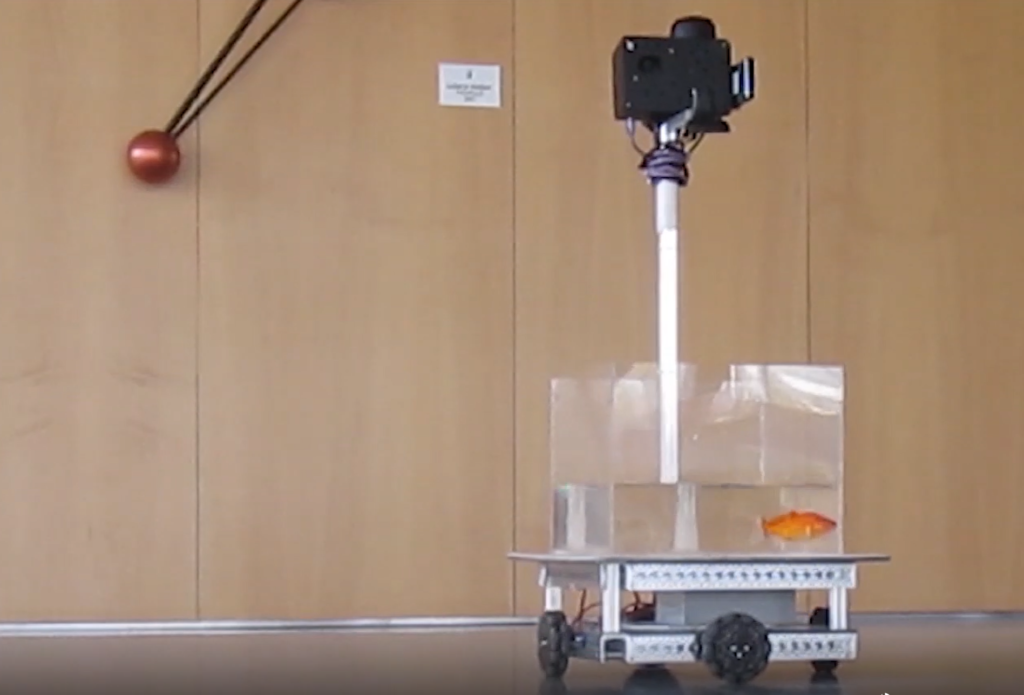
Drone Bees Are the Future
March 19, 2018
TechRepublic –Ben-Gurion University of the Negev has a long history of robotics research. Prof. Yael Edan, head of BGU’s ABC Robotics Initiative, is leading one fast-growing area of the University’s work in robotics—agriculture.
In an interview with TechRepublic, she described the latest human-robot interaction and developments in agricultural sciences, led by advances in drone bees and agricultural robots.
A calibrated, intelligent sprayer can identify, specifically, both grapes and leaves and apply sprays more accurately. “That was a huge project,” Prof. Edan said. “Another project we’re developing is a small drone to pollinate flowers, tomato flowers.”
The new drone could solve a major agriculture problem: the lack of bees worldwide.
Transcript excerpt
“There’s a lack of bees worldwide, so plant pollination is the critical element in all the agriculture production. We’re trying to develop a small [artificial] bee. Currently, it’s in the format of a drone.
Some plants can pollinate, only if there’s enough wind. Some plants need a direct insertion of the pollination onto the flower itself. So we’re dealing currently at phase one, of just creating enough wind. We need to identify where the flowers are, and the drone accompanies the wind produced, enough for pollination.
“Our primary concern is a detection of the flowers. We submitted a paper in which we detect flowers using deep machine learning techniques and had good results sufficient for the drones to start doing their work.
“Throughout the modern world there’s [also] a lack of agricultural workers. Agricultural automation continues and it’s possible robots can do different tasks, like selective spraying or harvesting.
Robots will work with humans, but won’t completely replace them. The farmer won’t allow that, as he wants ‘the green thumb’ in the loop, and he still wants to be in control.
“But, he wants and needs assistance. There’s not enough workers. They’re paying huge rates in the EU in order to harvest. Israel is importing people. The U.S. imports people from Mexico. So the whole modern world, at least, is dealing with a lack [of agricultural workers].”
By Jason Hiner, a fellow of Americans for Ben-Gurion University’s 2018 Murray Fromson Journalism Fellowship




